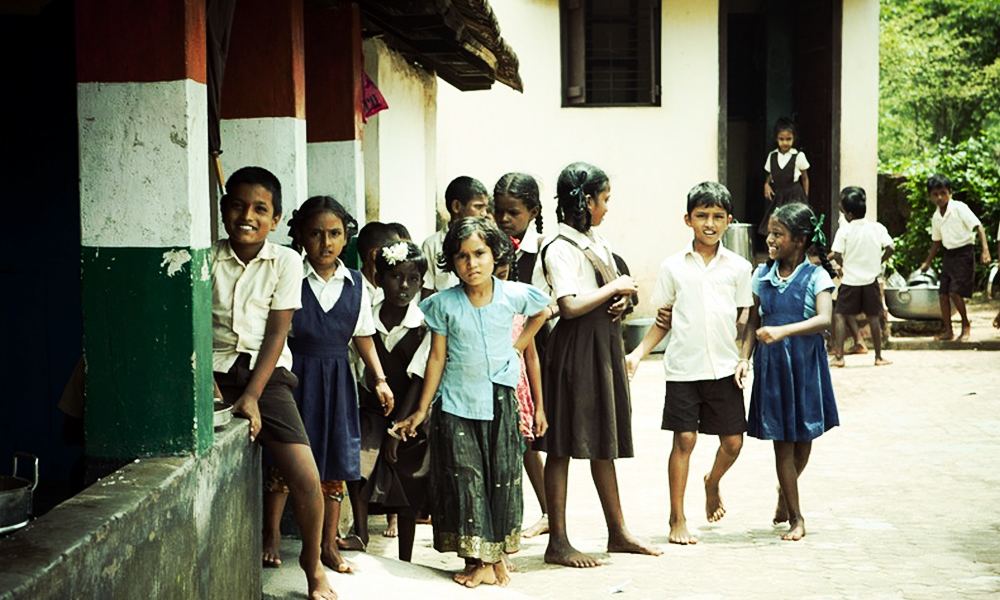
Image Credit: Pixabay
Pandemic School Closures: Group Of Organisations Come Forward To Focus On Social-Emotional Learning Of Children
Writer: Rakshitha R
Rakshitha an engineer turned passionate journalist with an inclination for poetry, creative writing, movies, fiction, mountains and seclusion. Not a part of the social process but existential.
India, 19 Feb 2021 12:47 PM GMT
Editor : Shubhendu Deshmukh |
Shubhendu, the quint essential news junky, the man who loves science and politics in equal measure and offers the complete contrast to it by being a fan of urdu poetry as well.
Creatives : Abhishek M
" An engineer by profession, Abhishek is the creative producer of the team, graphic designing is his passion and travelling his get away. In more ways than one, he makes the content visually appealing."
As the COVID-19 pandemic forced schools to close and robbed children of being connected, a group of organisations have come forward to help children focus on social-emotional learning.
As the COVID-19 pandemic forced schools to close and robbed children of being connected, a group of organisations have come forward to help children focus on social-emotional learning.
Swati, a class 8th student of a government school in Bengaluru, was so looking forward to the new school year with friends, but to her bad luck, the pandemic struck the world. And the schools and colleges remained shut, halting the curriculum learning, reported The Hindu.
But today, Swati is able to handle this situation that nobody prepared her for, thanks to the vital skills she has been learning through an unlikely medium: Football.
After enrolling with Dream A Dream, an organisation that uses sports and arts to engage and develop life skills among younger children, she has learnt about relationships, teamwork, self-awareness, goal setting, listening to instructions and gender norms.
The organisation was founded several decades ago by a group of people who wished to volunteer their time to engage children who were abandoned or terminally ill. But their project, during the pandemic, has a new agenda.
Their two-hour sessions begin with an icebreaker. Then, they make children play a football game incorporating street football rules, such as multiple balls, small-sided games, mixed or single-gender teams with no referee. Later, in a session named 'reflection circle', all the children who participated in the game share their experiences, about what they learnt, how they will communicate their learning to others etc.
A UNESCO report suggests that over 28.6 crore children between pre-primary and secondary levels have been affected by the pandemic. Seizing this opportunity, many big tech companies jumped in and started offering digital platforms to host free virtual classes. But nothing really substituted the classroom experience that offers crucial social and emotional interactions that contribute to life skills development.
But the organisations like Dream A Dream are focussing more on social and emotional learning (SEL) that is generally overlooked by the formal education sector.
The Collaborative for Academic, Social, and Emotional Learning (organisation advancing the development of academic, social, and emotional competence for all students) defines SEL as 'how children and adults learn to comprehend and manage emotions, show empathy, set goals, make responsible decisions and establish positive relationships.
"The social-emotional impact is usually long term, especially during a crisis like this. We experienced that during the 2004 tsunami as well in Chennai, where we tried to minimise the impact of the trauma on the mental health of children. But this time, the interventions have to be preventive," says Suchetha Bhat, CEO, Dream A Dream.
But this came with challenges too. Swati's family of four that shares the one smartphone between them had to let go of it for a few hours a day for their daughter to attend an online school. She also had to convince her parents, who were daily wage workers, to recharge the phone.
Nalandaway, another organisation, uses visual and performing arts to improve learning abilities and reinforce positive behaviour.
During the pandemic, they reached out to around six lakh students studying in aided and government schools in Tamil Nadu who were due to write their Class X board exams. The pandemic had escalated their exam anxiety.
The organisation came up with 'Take It Eazy'- a 30-day Interactive Voice Response (IVR) story project. The students had to give a missed call to listen to a humorous audio drama involving Pavitra, a 15-year-old girl, her mischievous younger brother Darshan, and Mala Akka, the friendly neighbour.
The purpose of this project was to help children cope with stress, promote self-affirmation, address emotions and mindfulness.
"But later, we realised that over 90 per cent of the students did not have access to a smartphone," says Sriram Ayer, founder of Nalandaway.
Since the lockdown, the organisation has launched over nine projects. Among them, one of the projects reached out to children directly with learn-at-home kits. As many as 29,000 kits have been distributed so far.
"We have had many significant revelations. One was that interventions have to be non-digital as digital access is still a privilege," adds Ayer.
Bhat says that SEL's increasing acceptance is a matter of glim than a blaze of light, as she is disappointed with many schools focussing on completing the syllabus. "I am disappointed that the focus everywhere is still on learning loss, and the talk is all about 'we need to complete the syllabus'. We should instead focus on the well-being of every child once they return to school to avoid mental health collapse," she says. She also felt the need to reimagine the curriculum.
Anantha Duraiappah, Director of the UNESCO Mahatma Gandhi Institute of Education for Peace and Sustainable Development, opined that to become part of mainstream teaching, SEL programmes perhaps need to follow a 'hybrid' model of education.
"In contrary to views that online learning cannot be conducive for SEL due to the lack of face-to-face interactions, we find that with proper design, online SEL can still be just as effective. The best method will be a hybrid system that maximises the strengths of both online and face-to-face pedagogy," she says.
Also Read: 'Toolkit' Calls For 'Economic Warfare' Against India, Indian Companies: Delhi Police FIR
 All section
All section














